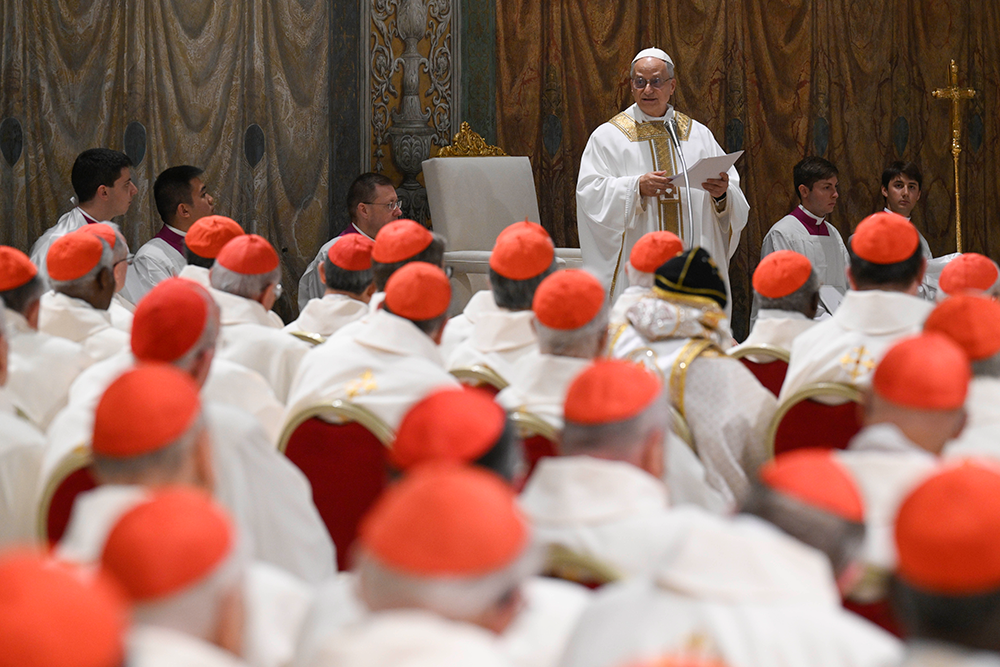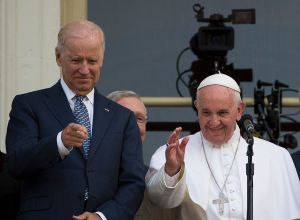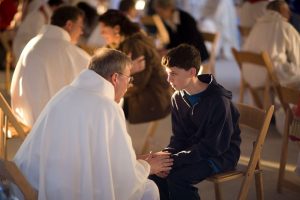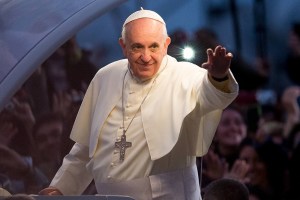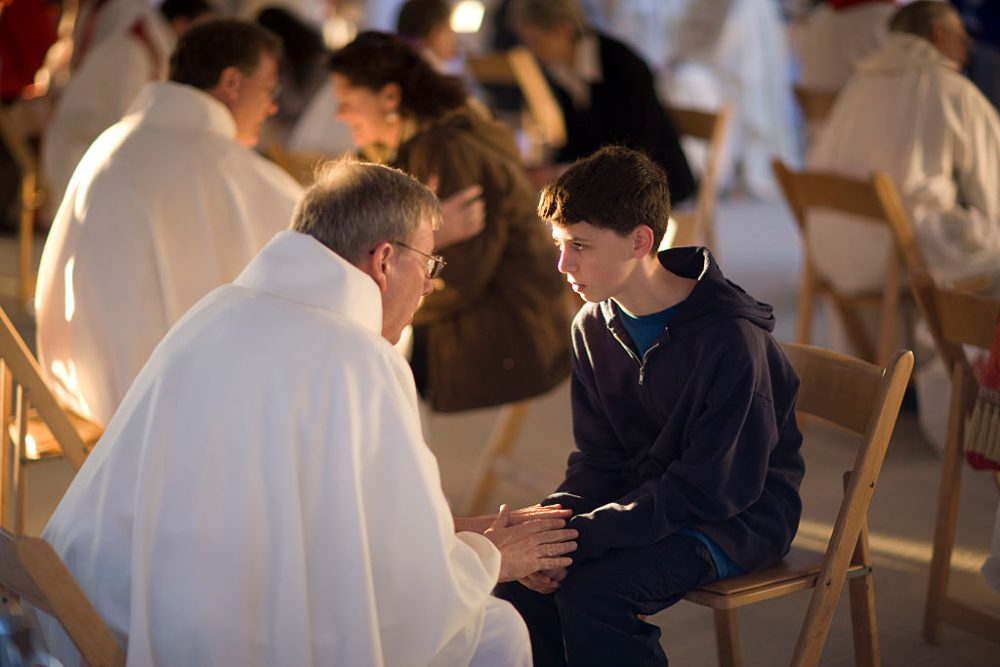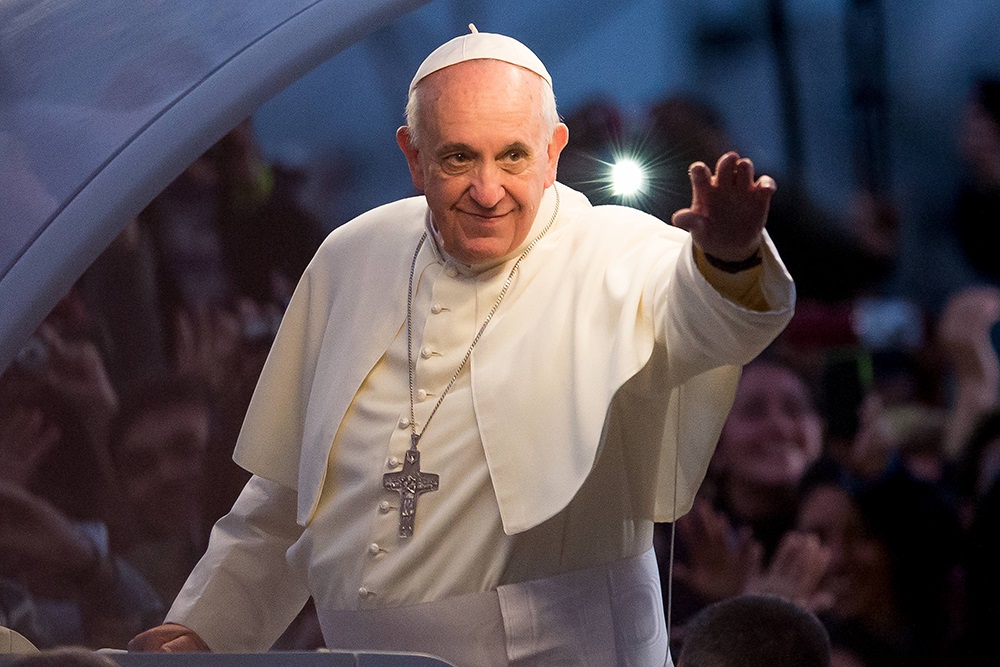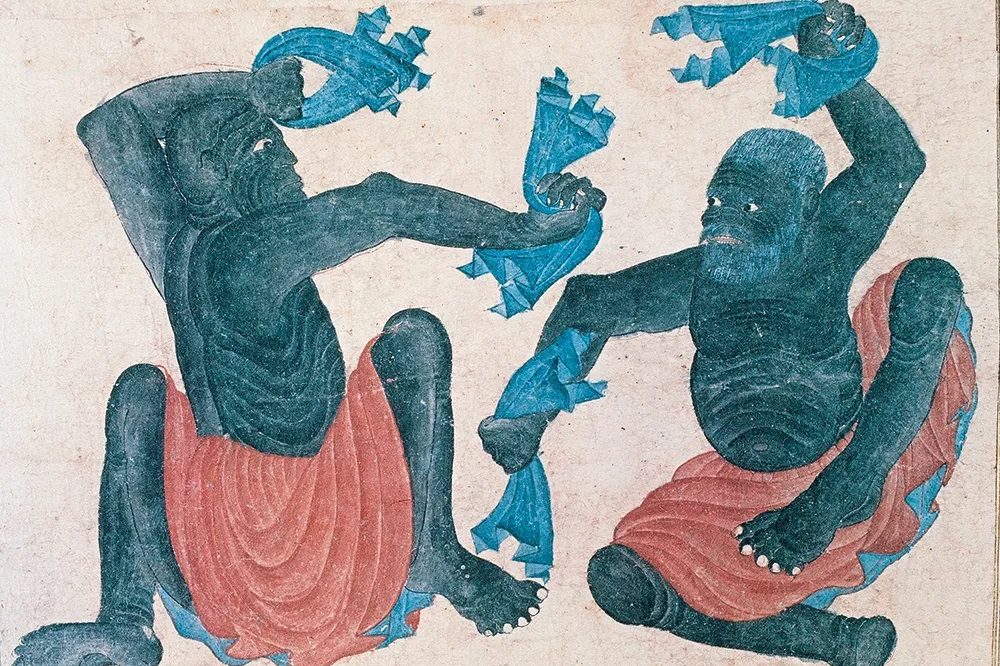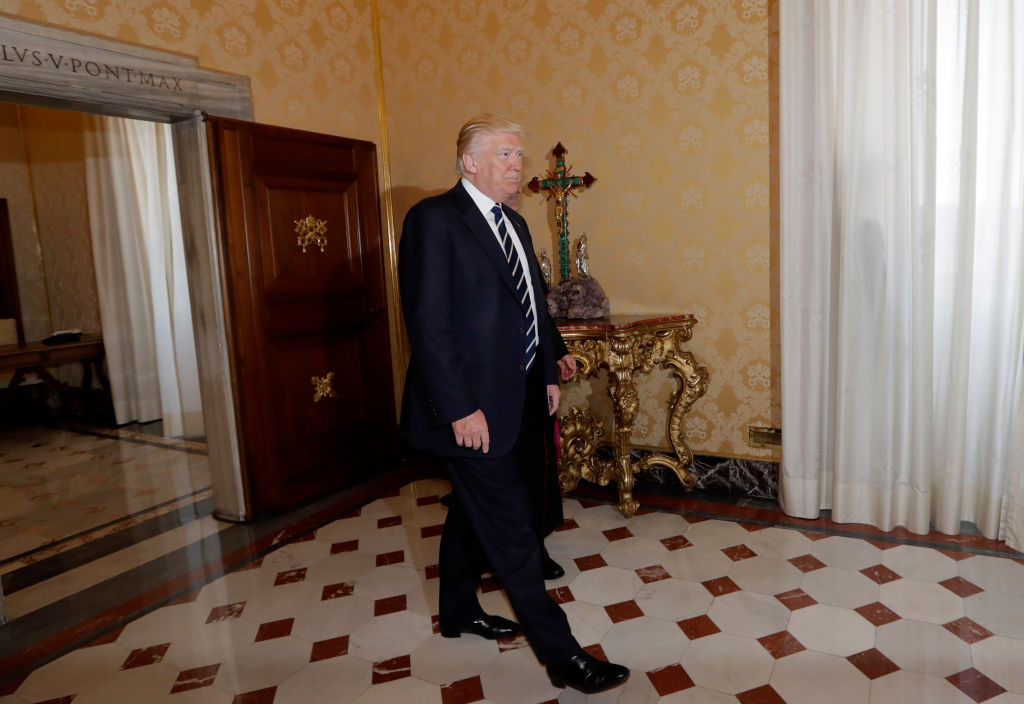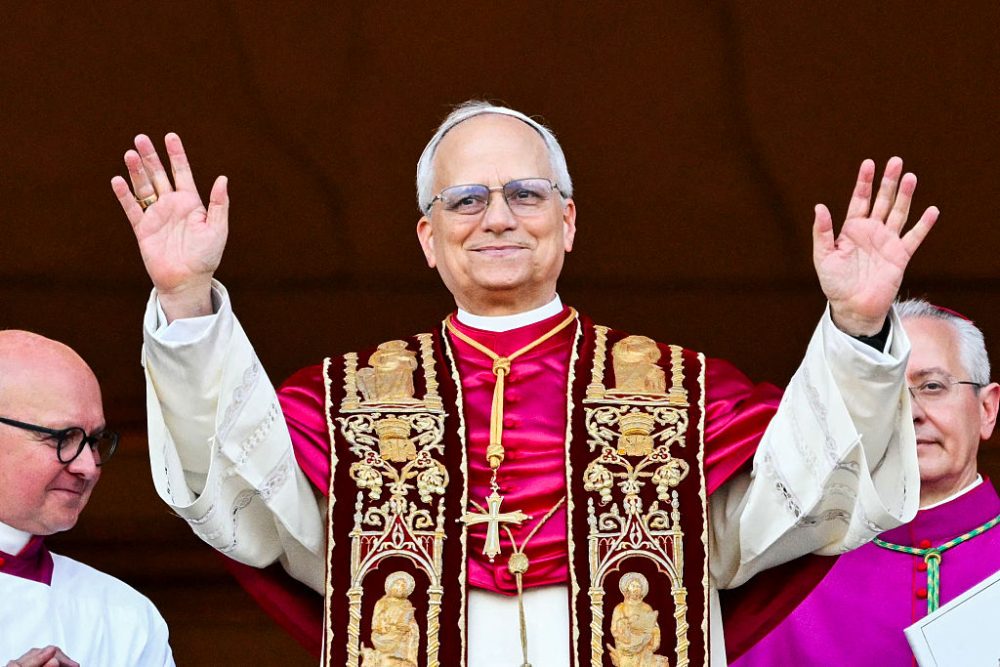Rome
In the days before the conclave that elected Pope Leo XIV, traditionalist Catholics were so worried about interference from evil spirits that, according to reliable sources, they arranged for a priest to conduct what’s known as a “minor exorcism” outside the walls of the Vatican.
Such ceremonies, which typically involve the sprinkling of holy water mixed with blessed salt, aren’t such a big deal as the major exorcisms of a demon from a person; they are blessings intended to remove Satan’s influence from places where it may occur. But the fact that some clergy in Rome thought the Sistine Chapel might be one of those places reveals the depth of the wounds inflicted on the Church during the turbulent reign of Pope Francis.
Can the new Pope, an American elected after just four ballots, heal those wounds? It’s hard to say because, compared with other cardinals, Robert Francis Prevost kept such a low profile – “not exactly a household name, even in the Vatican,” as one Roman source puts it.
Raised in Chicago, he spent most of his career as an Augustinian missionary and bishop in Peru before being catapulted by Francis into one of the top jobs in the Curia: Prefect of the Dicastery for Bishops, the Pope’s chief adviser on episcopal appointments. That was as recently as 2023, so he didn’t have much time to establish his profile – and he didn’t seem to want to.
Rumor had it that two other candidates had already turned down the post, not wanting to be chewed out by the irascible Francis for putting forward the wrong names and then being ignored. And, indeed, this seems to have been what happened to Bob Prevost, who was frozen out of major decisions such as the appointment to Washington of Cardinal Robert McElroy, a hardline liberal favorite of disgraced ex-cardinal Theodore McCarrick.
There was surprise, therefore, when a few months ago an unlikely duo of cardinals started lobbying for the mild-mannered Prevost to become the next pope. They were the retired Oscar Maradiaga of Honduras, a leftist confidant of Francis with a reputation for corruption and anti-Semitism, and Christophe Pierre, the doctrinally orthodox nuncio to the United States. The two men didn’t have much in common apart from being well-connected. People who had written off Prevost as a risk-averse bureaucrat began asking what was so special about him.
The investigative Catholic website The Pillar said Prevost was a cardinal “in the mold of Francis” but with the bonus of a “now-desired western approach to management and governance.” Yet he was also facing allegations of mishandling two sex abuse scandals. Three sisters in his former diocese of Chiclayo, Peru, accused him of failing to take action against two priests accused of abuse. Also, back in 2000, when Prevost was Augustinian provincial superior in Chicago, he allowed a priest suspected of sexually abusing children to live in a house half a block from a parish elementary school.
Campaigners for abuse victims – angered by Prevost’s claim to have followed correct procedures in the Peruvian case and his refusal to comment on the Chicago allegations – declared him unsuitable to be pope. The consensus was that, like the “Asian Francis” Cardinal Luis Antonio Tagle, hit by reports that he had run up gambling debts in Manila, Prevost had just seen his chances go up in smoke.
But then we heard the words “Habemus papam. Eminentissimum ac reverendissimum Dominum Robertum Franciscum Sanctae Romane Ecclesiae Cardinalem…” Vatican-watchers didn’t have to wait for the surname, because only one cardinal was called Robert Francis. But why on earth had the 133 electors rushed to elect a colorless American fighting off claims that he mishandled sex scandals?
Reactions from different factions varied widely. Liberals professed relief that Francis’s reforming legacy would be preserved, though most of them had preferred other candidates. Clerical careerists who had been promised advancement by the shamelessly ambitious Cardinal Pietro Parolin, the Vatican’s Secretary of State, tried to hide their disappointment. Many traditionalists were in despair and drew little comfort from the fact that the new Vicar of Christ appeared on the loggia of St. Peter’s dressed in the traditional garments ditched by Francis and had chosen the name Leo, associated with illiberal popes. Within minutes, tweets surfaced in which Prevost had attacked the immigration policies of the Donald Trump administration. Surely this was really Francis II?
A week later, however, moods have changed. The liberals are feeling queasy, having discovered that Leo opposes “the homosexual lifestyle,” the adoption of children by same-sex couples and the trans lobby’s creation of “genders that don’t exist.” Meanwhile, even hard-bitten traditionalists are expressing puzzled delight at his gestures in their direction.
For one thing, the new Pope clearly loves Latin. On Sunday he led a crowd of 100,000 in St. Peter’s Square in the Regina Caeli, a 12th-century antiphon to the Blessed Virgin. In fact he sang it, which takes some balls when you consider that it’s full of perilously high notes and he was basically singing solo because the audience didn’t know it.
Two days before, at a Mass for cardinals in the Sistine Chapel, the Pope read the Eucharistic Prayer in fluent and elegant Latin. But it was his homily that stunned traditionalists and other orthodox Catholics with its uncompromising focus on Jesus Christ and its assertion of papal authority.
“Now that God, through your vote, has called me to succeed the first of the Apostles, He entrusts this treasure to me so that, with his help, I may be a faithful steward of it for the good of the entire Mystical Body of the Church; so that she may become ever more a city set on a hill, an ark of salvation sailing through the waves of history.” Protestants winced. Perhaps it occurred to them that Pope Leo XIII, whose social teaching inspired Prevost’s choice of name, was also the pope who declared Anglican orders ‘utterly null and void’.
The new Leo was careful to pay tribute to Pope Francis, who “taught us so often” to bear joyful witness to the Christian faith. But, judging by his homily, he does not share his predecessor’s view that “all religions are paths to God… like different languages that express the divine.”
Francis said that last September, in a shockingly banal address to young people in Singapore. It was 1,000 words long, and not one of those words was “Jesus” or “Christ.” Never before had a pope flirted so carelessly with indifferentism, the belief that all religions are equal. It’s an idea particularly abhorrent to African and Asian bishops – and here, perhaps, we have a clue as to why, according to a credible report, there was a “stampede” of voters from the developing world towards Prevost after it became clear that the frontrunners Parolin and the Hungarian conservative Peter Erdo could not achieve a two-thirds majority.
In that crucial homily last Friday, Leo described Christ as “the only Savior” of mankind and accused some Christians of adopting a “practical atheism” that reduces Jesus to “a kind of charismatic leader or superman.” If, as seems likely, Cardinal Prevost had expressed this sort of passion in the pre-conclave meetings, and in a rumored meeting with the strictly orthodox Cardinal Raymond Burke, then – taking into account his long years of working with the poor in Latin America – it’s less surprising that the conclave voted for him not only decisively but quickly.
And there is another factor too. Pope Leo holds a doctorate in canon law from the Pontifical University of St. Thomas Aquinas in Rome. This is very significant, because one of the worst features of Francis’s 12-year reign was his willingness to disregard the laws of the Church, sometimes in order to protect his friends who had been accused or convicted of sexual assaults of the utmost depravity. Admittedly, Leo has himself been accused of failure in this area. But – and this is a difficult point to make – there is a difference between isolated instances of negligence of the sort that many bishops, including Pope John Paul II, have been guilty of, and Francis’s unprecedented harboring of sex criminals.
Pope Leo is too intelligent not to realize that the expressions of joy at his election now echoing round the Vatican are motivated in part by relief at the end of the unpredictable, disorientating and sometimes sinister reign of his predecessor.
There are aspects of Francis’s pontificate, such as its emphasis on the agony of displaced migrants, that he can legitimately embrace. There are others that he must repudiate, in actions if not words – beginning with swiftly laicizing Fr. Marko Rupnik, who has been accused of the sexual assault of many young women, including nuns. His influence at the court of Pope Francis was little short of diabolical.
The omens are encouraging. During his Mass for the cardinals, Leo XIV produced the outline of an unambiguously Catholic manifesto in language of startling clarity. And he did so in the Sistine Chapel. Is it too much to hope that, at least on a metaphorical level, the exorcism was successful?



